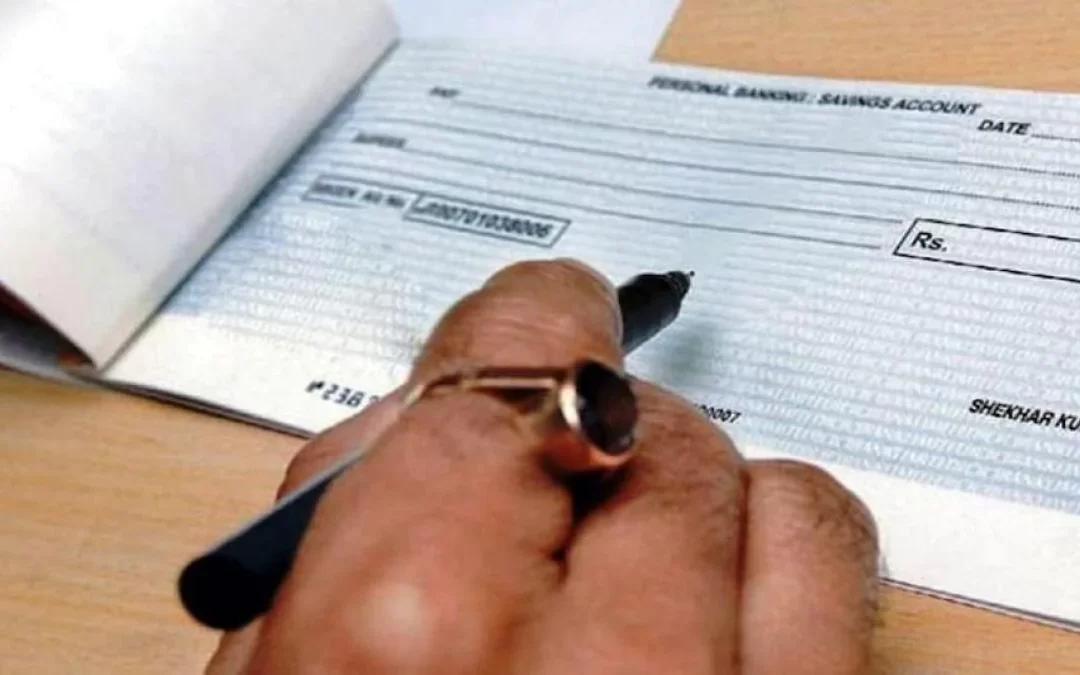Today the false and fake cases are more than the genuine ones. Most of the Negotiable Instrument’s courts are flooded and burdened with cheque bounce cases filed under Section 138 of the Negotiable Instruments Act 1881. The accused often get victimized for issuing a security cheque to the complainant. In a general chain of transactions, many company or lender keep a blank security cheque in order to start the business or hand loan. Many of the cases in India recorded that due to partial unpaid dues or EMI, many misuses those cheques and file a false cheque bounce case.
Conditions precedent for constituting an offence under Section 138:
There are numerous reasons which can be attributed to a bouncing of cheque.
- A person must have drawn a cheque for payment of money to another for the discharge of any debt or other liability; The cheque has been presented to the bank within a period of three months from the date on which it is drawn.
- That cheque is returned by the bank unpaid, either because insufficient of funds or that it exceeds the amount arranged to be paid from that account by an agreement made with the bank. Other numerous reasons are mismatch of signature, overwriting, issue with the date of the cheques, payment stopped by account holder, insolvency of customer, death of the customer etc.
- The payee or the holder in due course of the cheque, as the case may be, makes a demand for the payment of the said amount of money by giving a notice in writing, to the drawer of the cheque, [within 15 days] of the receipt of information by him from the bank regarding the return of the cheque as unpaid; and
- The drawer of such cheque fails to make the payment of the said amount of money to the payee or, as the case may be, to the holder in due course of the cheque, within fifteen days of the receipt of the said notice.
- The payee can file a complaint after laps of 15 days and within 30 days from the date of delivery or the notice or return of the notice. Complaint is made within one month of the date on which the cause of action arises.
Dealing with a fake or false cheque bounce case and Remedies:-
Once the complaint is filed or the case has been booked for the Cheque Bounce under Section 138 of the Negotiable Instruments Act 1881. Now the question arises, how to deal with a false cheque bounce case. Basically, in India people who are accused in a false cheque bounce case have to face legal issues. As they don’t know how to deal with it.
These are the important timely actions to be done for dealing with false cheque bounce case.
Procuring important documents
It is the most important thing that drawer must have a copy of all the necessary documents as proof for example:-
- Bank account statement.
- Bank draft cheque
- Copy of cheque. Etc
It is useful because at the time of legal issues drawer has to show in court that transaction has been made with a cheque issued by him.
Information from your bank.
If you received any notice regarding false cheque bounce case, you need to discuss about it with your bank immediately. Because you should know whether the cheque you issued is bounced or not. Then the bank will tell you the cheque is bounced or not and clarify the grounds for it.
Counter Reply to Legal notice
Once you received a legal notice regarding your cheque bounce you have only 30 days to reply back to that notice. Hire a lawyer immediately who can send a quick reply within the period of 30 days. And there is a lot of chances that after sending legal notice your case has been dismissed.
Book a Counter Case
Firstly in false cheque bounce case hire a lawyer to represent you in the court. Now there are many remedies that you can use against the false case :-
- Your lawyer can file a criminal case against the complainant for filing false case against you.
- Your lawyer can also book Defamation case demanding for compensation that he or she tried to defame you by maling your reputation.
- Your lawyer can also claim for damages if you have suffered or have invested for dealing with this false case.
Punishment for Cheque Bounce Under the NI Act
On receiving the complaint, along with an affidavit and relevant paper trail, the court will issue summons and hear the matter. If you fail to take timely actions then you may have to face the consequences. Let us understand the provision of law.
In 1988, the Negotiable Instruments Act, 1881, was amended in the year 1988 and Section 138 was inserted making the bouncing of cheques a punishable offence amounting to a punishment of imprisonment of a term extendable to 2 years, or with fine extendable to double the amount of the cheque or both. Even the banks have rights to stop the cheque book facility and closed the account for repeat offences of bounced cheque.
There is no limitation for awarding compensation.The main objective of incorporating Section 138 in the act by an amendment in 1988 was to inculcate faith in the efficacy of banking operations and credibility in transacting business on negotiable instruments to prevent the issuance of dishonest cheques by the drawer.
For legal advice Click Here

